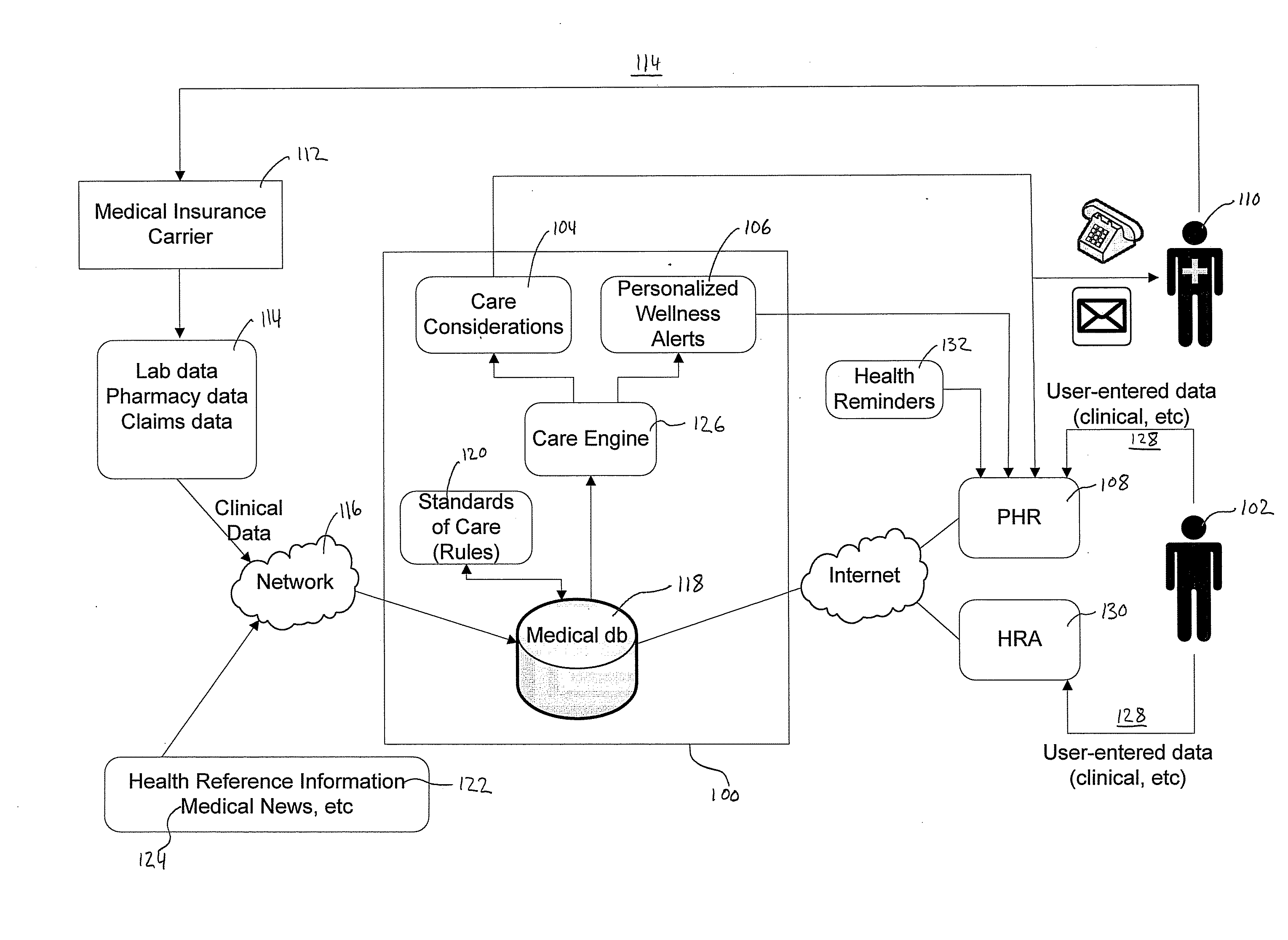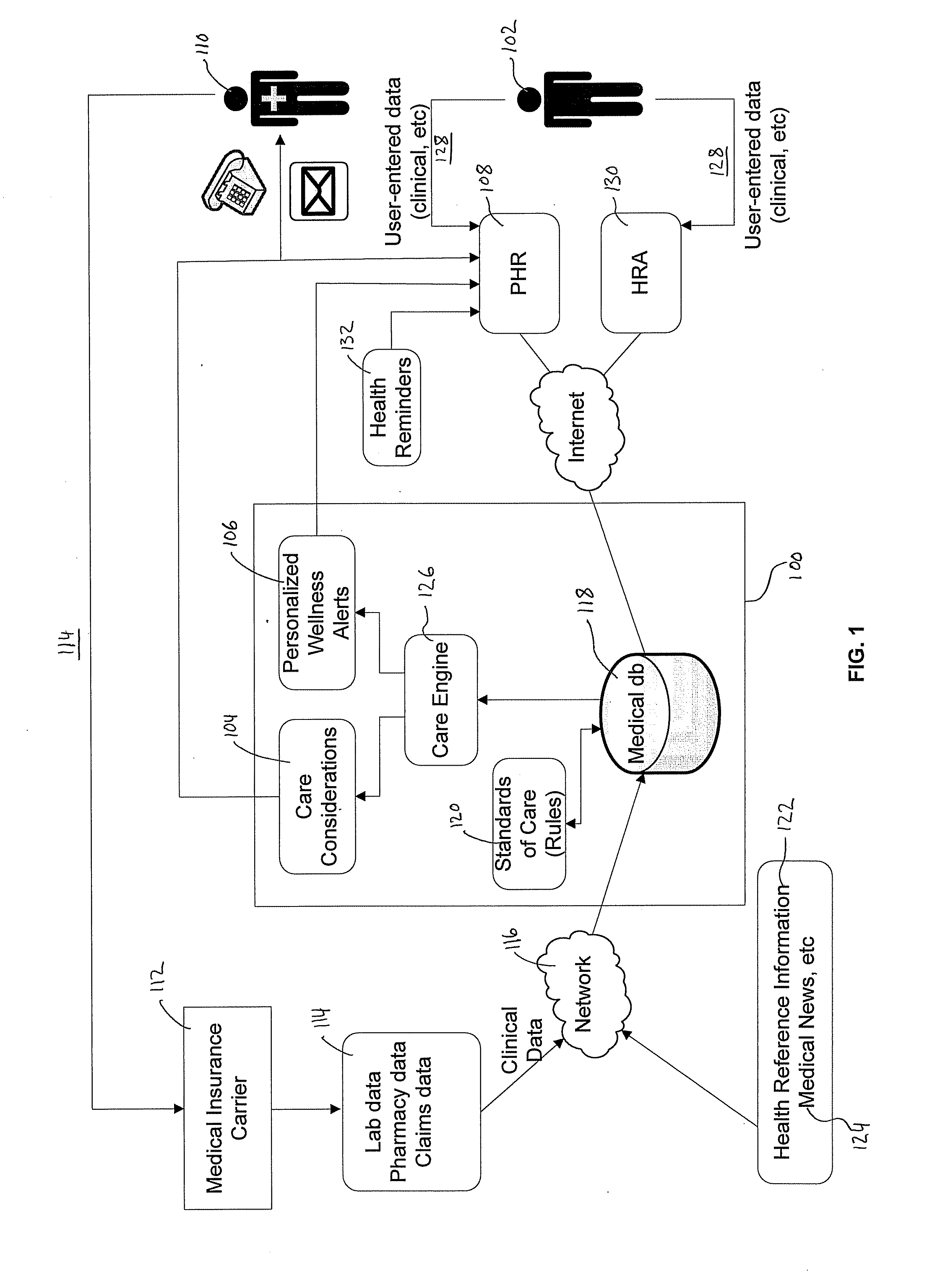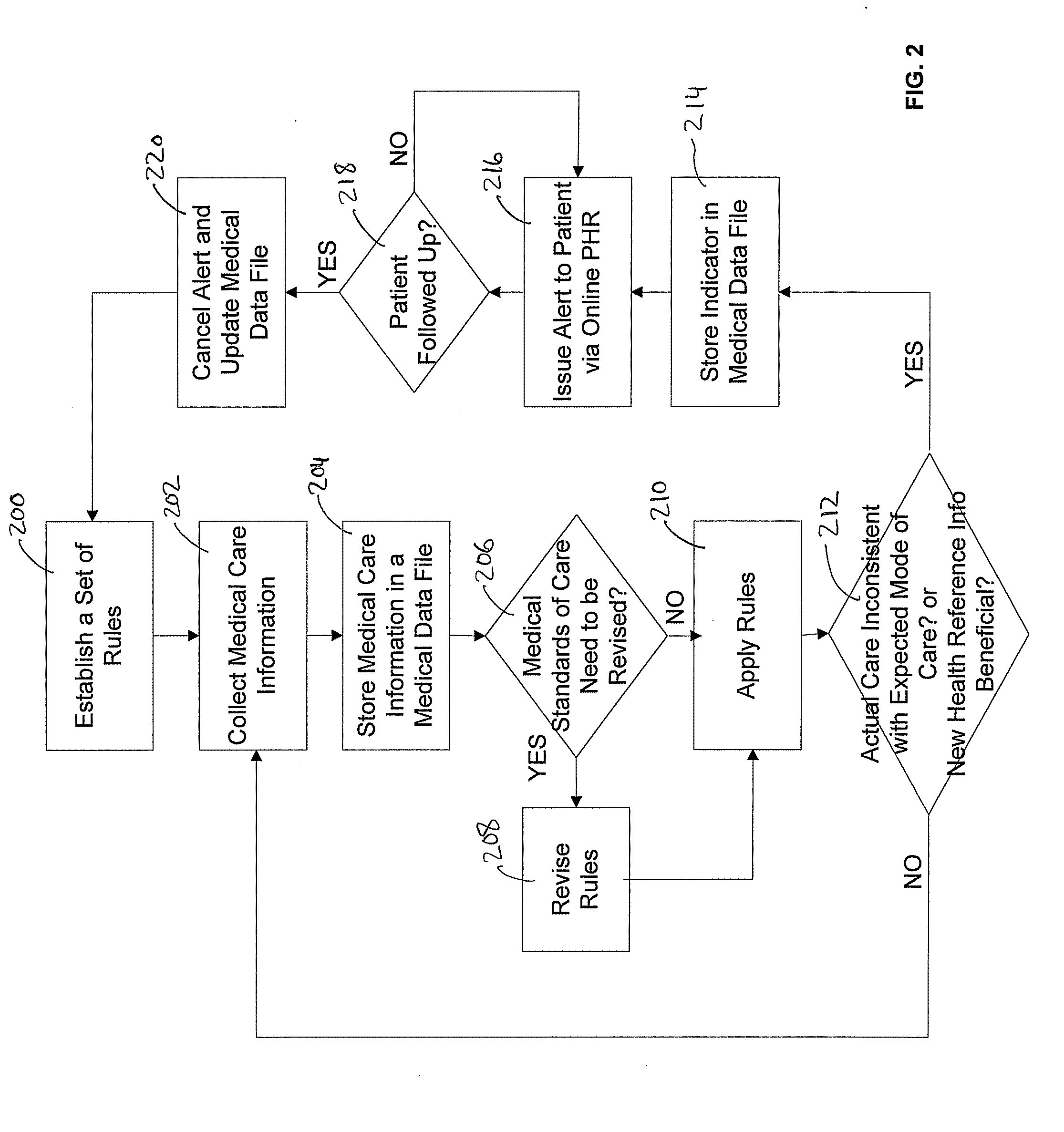[0004]Embodiments of the invention are used to provide an automated system for presenting a patient with an interactive personal health
record powered by
clinical decision support technology capable of delivering individualized alerts based on comparison of an expected medical
standard of care to information related to the patient's actual
medical care. Such embodiments are advantageous over previous, static health record systems that merely store and present
health related information. A health care organization or an employer collects and processes a wide spectrum of medical care information, including clinical data relating to a patient and condition-specific medical reference data, in order to generate and deliver customized alerts, including Care Considerations specific to the patient and personalized wellness alerts, directly to the patient via an online interactive personal health record (PHR). In addition to aggregating patient-specific
medical record and clinical alert information, the PHR also solicits the patient's input for tracking of alert follow-up actions (such as family history, over-the-counter medications, allergies, herbal supplements, monitoring items such as high
blood pressure,
cholesterol and diabetic conditions and other elements claims data may not track) and allows the health care organization to track alert outcomes.
[0007]To supplement the clinical data received from the insurance carrier, the PHR allows patient entry of additional pertinent
medical information that is likely to be within the realm of patient's knowledge, including family history, use of non-prescription drugs, known allergies, unreported and untreated conditions, as well as results of self-administered medical tests. Preferably, the PHR facilitates patient's task of creating a complete health record by automatically populating the data fields corresponding to the information derived from the claim,
pharmacy and / or lab result-based clinical data. Preferably, the PHR gathers at least some of the user-entered data via a
health risk assessment tool (HRA) that allows user entry of family history, known chronic conditions and other medical data, to provide overall patient
health assessment or to flag individuals at risk for one or more predetermined medical conditions. Preferably, the HRA tool presents a patient with questions that are relevant to his or her
medical history and currently presented conditions. The
risk assessment logic branches dynamically to relevant and / or critical questions, thereby saving the patient time and providing targeted results. The data entered by the patient into the HRA also populates the corresponding data fields within other areas of PHR and generates additional Care Considerations to assist the patient in maintaining optimum health.
[0009]To ensure prompt
patient response, the health care organization preferably sends concurrent email notifications to the patient regarding availability of customized alerts at the PHR. When the CareEngine®
System identifies an instance of actual care inconsistent with the established, evidence-based best standards of care, the patient is presented with a Care Consideration alert via the online PHR. In embodiments, the Care Considerations include notifications to contact the health care provider in order to start or stop a specific medication and / or to undergo a specific examination or test procedure associated with one or more conditions and co-morbidities specific to the patient. The Care Consideration includes notifying the patient regarding known
drug interactions and newly suggested medications based on the evidence-based best practices of care. Similarly, the CareEngine®
System notifies the patient regarding relevant health reference information by issuing personalized wellness alerts, via the PHR, based on analyzing the newly acquired health reference information with respect to insurance-based clinical data and user-entered data to ensure overall consistency of care. In one embodiment, the patient is able to use the PHR to search for specific health reference information regarding a specified condition, test or
medical procedure by querying the medical
database via a
user interface. Preferably, the PHR allows the patient to create printable reports containing the patient's
health information, including health summary and
health risk assessment reports, for sharing with a health care provider.
[0010]Additionally, by functioning as a
central repository of a patient's
medical information, the PHR empowers patients to more easily manage their own health care decisions, which is advantageous as patients increasingly move toward
consumer-directed health plans.
 Login to View More
Login to View More  Login to View More
Login to View More 


